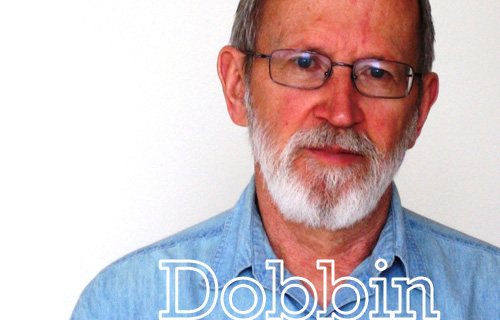COMMENT: Time for an adult conversation about taxes
The suggestion that we need to raise taxes in this country has become so taboo in the nation’s politics that even talking about it is seen as tantamount to political suicide. The right and its benefactors, the wealthy and large corporations, have had the field to themselves for a long time.
Their framing of taxes as a “burden” and their promises of tax “relief” (borrowed from the Republicans in the U.S.) has become so imbedded in the public consciousness the spontaneous reply to the question of whether we should raise taxes is usually “no.”
Unless.
Unless you actually get to have an adult conversation about taxes with people one-on-one and reestablish the connection between taxes and a civilized society. That’s what the B.C. office of the Canadian Centre for Policy Alternatives [disclosure: I am on the board] did this summer, and the results confirm in fascinating detail what other polls have shown. When connected directly with public services and the public good clear majorities of people support increased taxes, not just on the wealthy and corporations, but even on themselves. Break through the narrow anti-tax propaganda and connect with people’s communitarian values and you find a surprising willingness to pay more.
The CCPA study (an online poll of 1,023 conducted by Environics Research and nine group interviews in three B.C. communities) reinforced what most polls now show. Sixty-seven per cent of respondents think major corporations pay less tax than they should and 78 per cent say people in the top 20 per cent of incomes (that’s $85,000 and above) are asked to pay too little. The higher up the income scale the greater the agreement — with 90 per cent saying people who make over $250,000 should pay more. (Remember, this was a B.C. survey but results in most provinces would be similar given the outcomes of other surveys.)
At the root of the results of the survey is a deep understanding of why Canada is (still) one of the best countries in the world to live in. Asked to agree or disagree with the following statement: “Taxes are the price we pay for the quality of life we have in Canada,” 60 per cent said yes and just 20 per cent said no.
That is where the study gets really interesting — when it digs down into people’s attitudes towards what kind of country they want and what they might be willing to pay for it. The results are not without their contradictions. Seventy-one per cent when asked about their own tax level said it was too high. This reflects the dominant framing of the issue by the media and right-wing political parties.
But then the survey listed 11 policy objectives (all but one traditionally identified as progressive) and asked people whether or not they would be willing to pay between 0.5 and three per cent more of their income to achieve them. Sixty-eight per cent said they were willing to pay a higher share of their own income in order to support four or more of the 11 policies, and 38 per cent were willing to pay for eight or more. Only 12 per cent said they would not be willing to pay more for any of the policy objectives while 20 per cent said they would pay for all 11. On average, respondents were willing to pay for six of the 11 policy options.
Sixty-nine per cent would pay for more access to home and community based health care services for seniors; 61 per cent to eliminate Medical Service Plan premiums; 58 per cent to protect B.C.’s forests and endangered species and 53 per cent to increase welfare rates. Forty-seven per cent would pay extra to reduce tuition fees for postsecondary education by 50 per cent.
The survey revealed just how pervasive the connection between taxes and quality of life is, even amongst conservative voters. While people voted in large numbers for the B.C. Liberals while they were slashing taxes (resulting in a loss over $3 billion in yearly revenue), many of them would actually pay more for what by any measure are progressive social goals.
The differences between supporters of different political parties were a lot less significant than most would have assumed. According to the study, on average B.C. Liberal voters were willing to pay more for 5.4 of the 11 policies, B.C. Conservative voters for 5.5, NDP voters for 6.5, and Green voters for 6.8.
That wasn’t the only surprise in the survey. It is well known that young people 18 to 29 demonstrate the lowest voter turn-out rates of any age group. You might conclude from this that they think government is irrelevant to them. Yet they were nearly twice as likely to agree to an increase in taxes as those over 60. It’s not clear why there is such a difference, but it might have something to do with the dramatic increase in tuition fees over the past decade. Students know that paying a few hundred dollars a year more in taxes (which might lead to a decrease in tuition fees) is preferable to accumulating $50,000 in student loans.
What do the results of this survey — and similar results from other polls — mean for Canadian political culture? It means that if we do not soon have a national (and rational) debate about taxes in this country, we might just as well accept that our collective vision of the country is one of continued gradual decline in our education system, Medicare, infrastructure, science and host other measures that together tell us just how civilized we are.
We can wake up to the reality of what jettisoning billions of dollars in yearly revenue through virtually useless tax cuts actually means for our quality of life. Or we can quietly become California North. You remember California. It used to boast amongst the best social services and education in the U.S. (its education results were consistently in first place). Liberal governors used progressive taxes to build the best public college system in the country, generous social assistance, and a system of aqueducts to bring water from the wet north to the dry south.
Then in 1978 came Proposition 13, a populist referendum on taxes which established a threshold of two-thirds in the state legislature for any tax increase. The result decades later: crumbling infrastructure, one of the highest student-teacher ratios in the country, and a near-declaration of bankruptcy in 2009. Republican Governor Arnold Schwarzenegger threatened in 2010 to completely eliminate the state’s social welfare program.
But ironically it is liberal Democratic Governor Jerry Brown who is doing the most draconian cuts of all — slashing education, welfare, Medi-Cal, the state’s health insurance program for the poor (by $1 billion) and cutting hundreds of millions from the state’s child care system and financial support to family members who support disabled individuals and the elderly.
To be sure the 2012 cuts also have a lot to do with the recession, but had Proposition 13 not put an arbitrary cap on government’s ability to raise revenue, things would not be nearly so disastrous. What is so stunning about California is that the whole population seems to have drunk the anti-tax Kool-Aid even as their lives get measurably worse every passing year. Political cowardice on the part of the Democrats means there has been literally no push-back against the self-destructive populism at the root of the Proposition 13 syndrome.
The lesson here for Canada’s (New) Democrats is brutally simple. (There is no lesson for the Liberals; they’re the tax-cut champs). If the NDP, both provincially and federally, does not find the courage to start a national debate about taxes they simply can forget about ever establishing a social democratic government worthy of the name. Just what kind of government will B.C.’s NDP leader, the genuinely progressive Adrian Dix, run if he wins next May? The Liberals’ tax cuts have left a $3-billion hole in yearly revenue and so far Dix has been disappointingly cautious about tax increases.
Thomas Mulcair, if he actually wins the next election, will take over a country in dire fiscal straits — with a $50-billion hole in annual revenue caused by Liberal and Conservative tax cuts. People worry about Mulcair’s commitment to social democratic policies. They needn’t bother. If he doesn’t address the need for more revenue through higher taxes that question will be irrelevant. His role will be pre-determined: managing a severely diminished national government created by Stephen Harper.
Murray Dobbin is a journalist, author, and activist. This column originally appeared on his blog. Reprinted with permission.
























